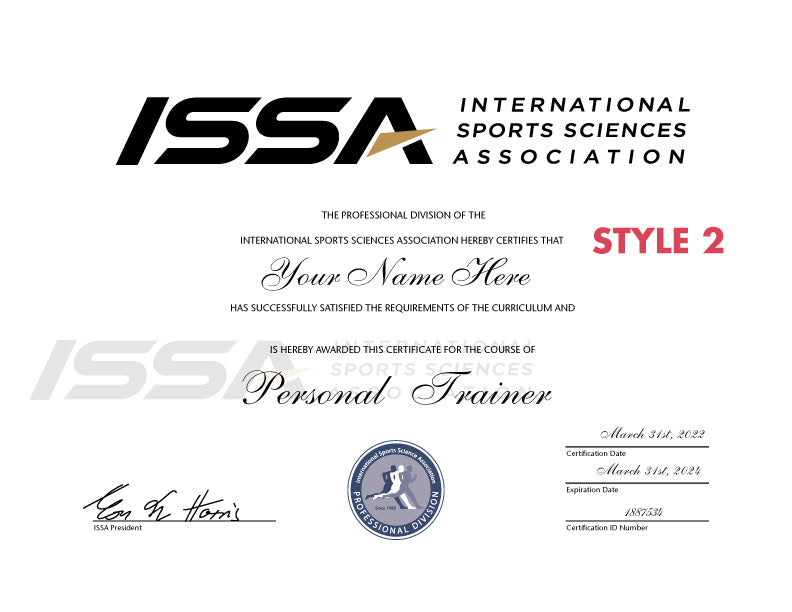Are you considering becoming a trainer or coach, but don’t have the required credentials? While it is important to be certified in your field of expertise, some people can succeed by relying solely on passion and experience. In this article, we will explore the pros and cons of being a trainer without certification.
We will discuss how having credentials can benefit you as well as what challenges may arise from not having them. By weighing both sides carefully, you can make an informed decision about whether pursuing certifications is right for you or if relying on your knowledge alone is enough to achieve success.
Benefits of Training Without Credentials
Being a trainer without credentials can have many advantages in certain contexts. One benefit is the ability to quickly become an expert in any subject area and hone your skills on the go, as training does not require any prior qualifications or certifications.
This allows you to enter new markets quickly, gain experience faster, and specialize in unique areas of expertise that may be difficult for credentialed trainers to access. Additionally, being a trainer without credentials also gives you more freedom when it comes to setting rates for services and creating customized programs tailored specifically for each client’s needs. Furthermore, being unencumbered by pre-determined protocols or standards allows trainers to explore different methods of teaching and engage with their clients more effectively.
Lastly, since there are no licensing requirements or restrictions associated with becoming a trainer without certification, individuals can take advantage of this situation by using creative marketing strategies that allow them to attract potential clients from diverse backgrounds.
Challenges of Training Without Credentials

One of the biggest challenges for those who want to become a trainer without any credentials is learning how to prove their expertise. Without a degree, certificate, or other type of professional qualification, it can be difficult to demonstrate one’s ability and knowledge in the field.
Additionally, there are often concerns from potential employers that trainers with no certification may not have received adequate instruction or training on how to effectively teach others. Furthermore, many people lack access to resources that certified trainers rely on for staying up-to-date on best practices and techniques in the industry which can put them at a disadvantage when competing against credentialed competitors.
Finally, without an official stamp of approval from an accredited institution or organization it can be challenging for untrained professionals looking to establish credibility within their chosen profession.
Advantages of Having Professional Certification
Having a professional certification can be an important advantage for trainers looking to establish their credibility and gain the trust of potential clients. Professional certifications demonstrate that you have extensive knowledge in your field, as well as the experience needed to be successful.
Professional certification also adds legitimacy to your skillset, which is essential for any trainer who wants to stand out from the competition and build a strong reputation in their industry. Furthermore, having a professional certificate gives prospective clients confidence that you have the necessary qualifications and expertise they need when seeking training services.
Lastly, with more competitive jobs on offer in today’s market, having a professional certification will give trainers an edge over those without one.
Disadvantages of Not Having Professional Certification

When it comes to personal training, having a professional certification is essential for success. Without a certification, trainers may not have the necessary knowledge or skills to provide quality guidance and instruction to their clients.
Consequently, trainers who lack proper credentials can face several drawbacks that could significantly hinder their ability to work effectively as professionals. One of the major disadvantages of being an uncertified trainer is that they may be limited in terms of what services they can offer and where they can practice them.
Many gyms and health clubs require proof of professional qualifications before allowing someone on staff, making it difficult for those without this paperwork to find employment in this field. In addition, many insurance providers will only cover treatments provided by certified personnel – thus excluding uncertified practitioners from providing certain services such as massage therapy or physical rehab sessions. Furthermore, when looking at the competitive landscape, those lacking certifications often struggle with standing out amongst other professionals in the industry who possess valid certificates and diplomas from accredited institutions.
This means that even if one has all the natural talent needed for being a successful trainer, without having any kind of formal recognition or qualification backing up one’s abilities it can be difficult for one to gain traction within their chosen specialty area or attract enough clients due to a lack of credibility associated with being unqualified. In sum then while there are some advantages associated with working as an uncertified trainer – such as lower overhead costs – ultimately not possessing any kind of professional qualification severely limits potential opportunities available in this field along with how far one’s business can grow over time; making obtaining certification a must-have item if anyone wants long-term success within this profession.
Conclusion
As a personal trainer in Puerto Rico, it is important to weigh the pros and cons of having certification versus relying solely on passion. Both have their benefits and drawbacks, but ultimately it comes down to assessing what you need to achieve your goals.
Certification can provide credibility and assistance with gaining clientele, while relying on passion alone may lead to greater autonomy over your day-to-day operations. Ultimately, finding the right balance between credentials and passion will be key for any aspiring personal trainer in Puerto Rico looking for success.



